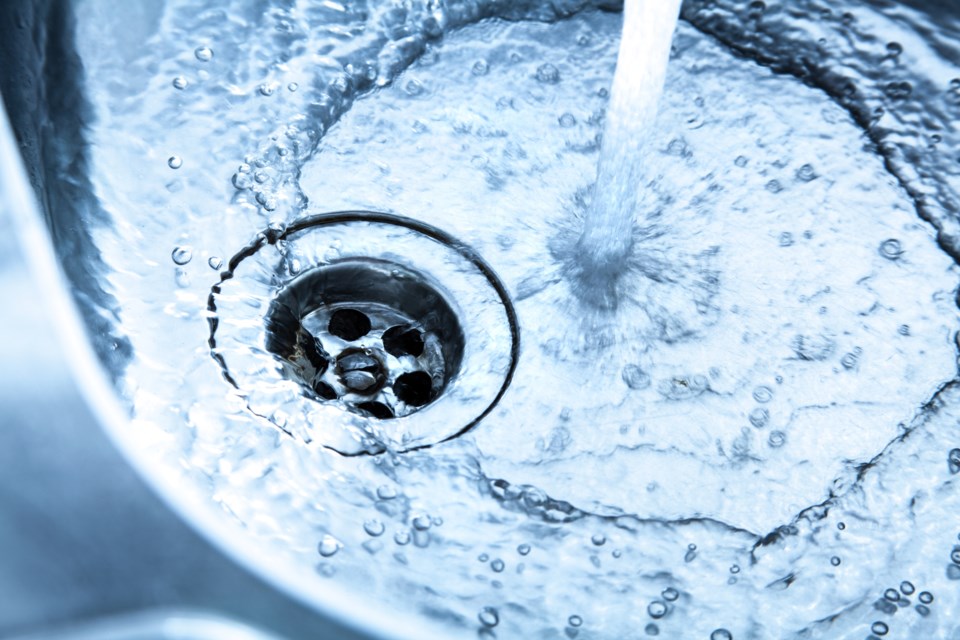It’s official - water and sewer costs in Flin Flon are about to climb.
City council officially approved new, higher water and sewer rates during their Nov. 19 meeting, following the release of the final report of the Manitoba Public Utility Board (PUB) last month. The PUB, in a report issued Oct. 29, approved higher prices for each of the next four years for Flin Flon, but lower ones than the City had originally proposed. The PUB also approved a rate rider on water that would specifically cover the cost of two years’ of infrastructure deficits incurred by the City in the past, totalling about $1.5 million - the rider will be removed if the amount of money needing to be recouped is reached before then.
Starting next year, charges for unmetered customers will go from $104.81 a month this year to $116.78 a month next year, with increases due each year until 2028. If the City’s rate rider is still in effect in 2028, unmetered monthly prices will hit $162.99 per month - $153.69 a month if the rider is resolved before then.
The rate for metered water will go from $12.33 per 1,000 gallons of water to $18.38 for the same amount of water starting Jan. 1, along with a $6.38 monthly service charge.
The new rates also include changes for how the City assesses minimum monthly charges. The City’s previous minimum charge, assuming 6,000 gallons of water use per household per month, was $73.93 per month. That minimum will be lowered to about $26, starting in 2025, allowing people who use less water to save money.
Response to the increase had been plentiful and almost universally negative. Earlier this year, the PUB received well over 100 individual letters from Flin Flonners against the proposed change - in August, a public meeting with PUB members at the Flin Flon Community Hall drew over a hundred people, with almost all attendees who spoke vocally against the change.
The mood around the council table was sombre as each official in attendance approved the change - there is no appeal process for council to not factor in PUB’s approved package. What you see from the board is what you get - and even councillors weren’t pleased to have to pass the change.
“I’d say this is very bittersweet,” said councillor Steve Lytwyn.
“I agree with what other people have said and the sentiment. It’s refreshing that PUB listened to the community, but this is still going to hurt people’s pockets. There’s no doubt about that. It’s a bit the first year, more the second and it keeps adding up - it’s disappointing, but we have to pay that.”
Mayor George Fontaine said the change would be needed to cover both the costs of operating the service and the deficit, adding he would also be paying higher rates and that the public’s comments at a PUB meeting in August helped change the proposed rate.
“When we went over the original, which was what our consultants told us to do at the meeting, everybody was against it. They came back with a lower proposal and a longer term,” said Fontaine.
“Lower payment over a longer term. We don't have a choice as to what they do, but they came up with better conditions. It was worth coming up.”
Along with the new deal comes an option to re-review the rates each year, depending on water usage and any other factors that may come up. Councillor Alison Dallas-Funk said that, since 2022, the City has used less water due in part to line repairs, fixing leaks and flow issues.
“One thing I want to note about PUB and their decision - they gave us the recommendation that we could review it annually for numbers. If we need to change it, we can do that. We’re projecting numbers going down - and they already have from the original numbers we used,” she said.
“The original dollar amount was from two years ago. They based this new rate on our last full year, which was lower. We came in at 72 litres per second before and now we’re sitting at 33 to 39 litres per second. Our projection is we’re going to keep decreasing that number and improving our water rates. It’s great that they’re recognizing that and allowing us to review it annually.”
After the PUB meeting and the release of PUB’s report, Dallas-Funk said council discussed the rate proposal extensively, including whether there were ways to pay off the infrastructure deficit without increasing water prices - that also included questioning why a rate rider would have to be included. Due to provincial rules on how municipal governments can fund utilities, no town, city or village can run a deficit on utilities like water - any possible debt incurred has to either be paid off by a reserve fund or through a rider. The City does not have a reserve fund available for the project, leading to the rate change.
“We don't have a reserve right now. There's absolutely no reserve in the utilities fund. If something really disastrous happens, we have no money sitting in a reserve fund. For example, the computer system - if that went down or something else like that, we don't have a reserve. That rate rider, that's what's covering that,” she said.




